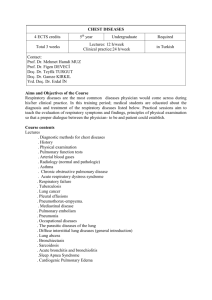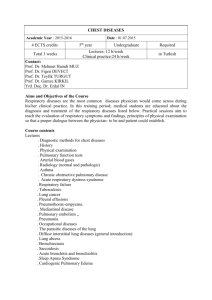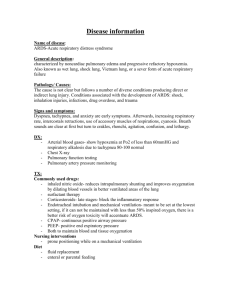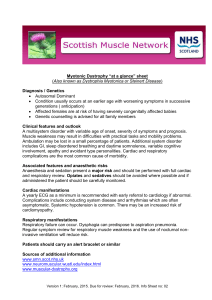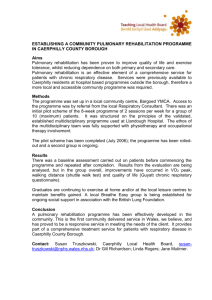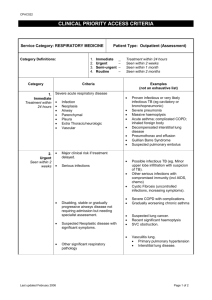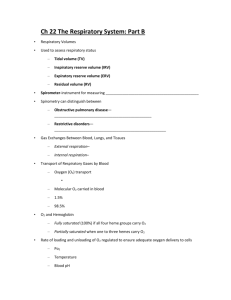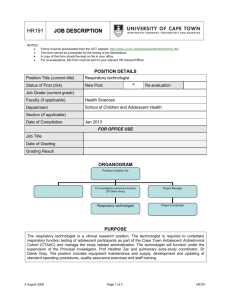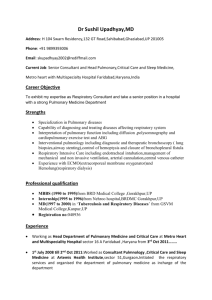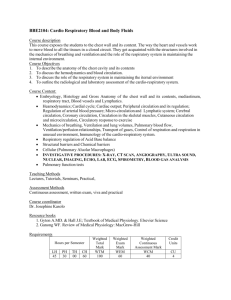Respirology
advertisement
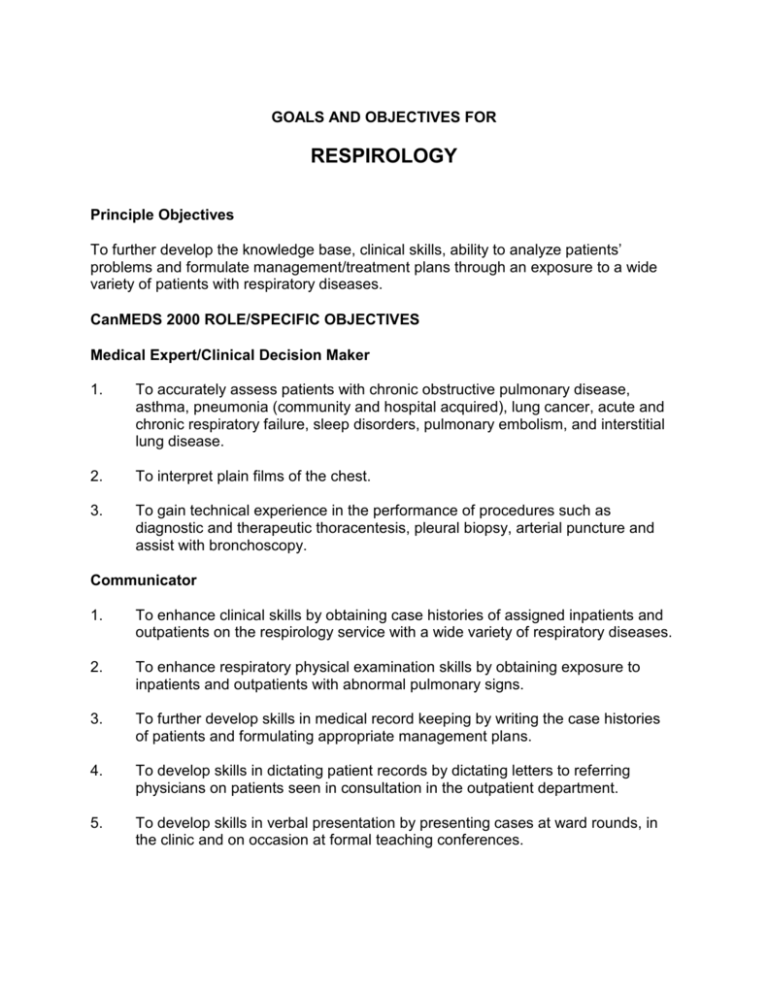
GOALS AND OBJECTIVES FOR RESPIROLOGY Principle Objectives To further develop the knowledge base, clinical skills, ability to analyze patients’ problems and formulate management/treatment plans through an exposure to a wide variety of patients with respiratory diseases. CanMEDS 2000 ROLE/SPECIFIC OBJECTIVES Medical Expert/Clinical Decision Maker 1. To accurately assess patients with chronic obstructive pulmonary disease, asthma, pneumonia (community and hospital acquired), lung cancer, acute and chronic respiratory failure, sleep disorders, pulmonary embolism, and interstitial lung disease. 2. To interpret plain films of the chest. 3. To gain technical experience in the performance of procedures such as diagnostic and therapeutic thoracentesis, pleural biopsy, arterial puncture and assist with bronchoscopy. Communicator 1. To enhance clinical skills by obtaining case histories of assigned inpatients and outpatients on the respirology service with a wide variety of respiratory diseases. 2. To enhance respiratory physical examination skills by obtaining exposure to inpatients and outpatients with abnormal pulmonary signs. 3. To further develop skills in medical record keeping by writing the case histories of patients and formulating appropriate management plans. 4. To develop skills in dictating patient records by dictating letters to referring physicians on patients seen in consultation in the outpatient department. 5. To develop skills in verbal presentation by presenting cases at ward rounds, in the clinic and on occasion at formal teaching conferences. Educational Goals and Objectives RESPIROLOGY …/ 2 Collaborator 1. 2. Recognize and integrate into case management the roles of other health care providers including thoracic surgeons, physiotherapists, respiratory therapists, dieticians, nurses and social workers. Foster respect for and appreciation of the importance of communication with allied health care workers and referring physicians in the care of patients. Manager 1. Utilize health care resources effectively and efficiently, demonstrating an awareness of a cost effective way of managing patients. Health Advocate 1. 2. Recognize the role played by physicians in the care of patients with pulmonary disease. Appreciate patient autonomy and the religious, ethnic, and psychosocial factors which influence the doctor-patient relationship and to take such factors into account when pursuing problems and understanding patient decisions. Scholar 1. 2. 3. Use patient encounters as a stimulus to further reading and review of the current literature. Develop and apply skills in critical appraisal and the practice of evidence based medicine. Understand the importance of patient education in the management of many common pulmonary conditions and facilitate such learning whenever possible. Professional 1. Demonstrate effective ethical medical care with integrity, honesty and compassion. 2. Display appropriate professional behaviors and interpersonal skills. 3. Demonstrate an awareness of and appropriate response to ethical issues in the management of respiratory illnesses such as palliative care, home ventilation, cardiopulmonary resuscitation, and withholding and withdrawing life support for respiratory failure. June 2003
